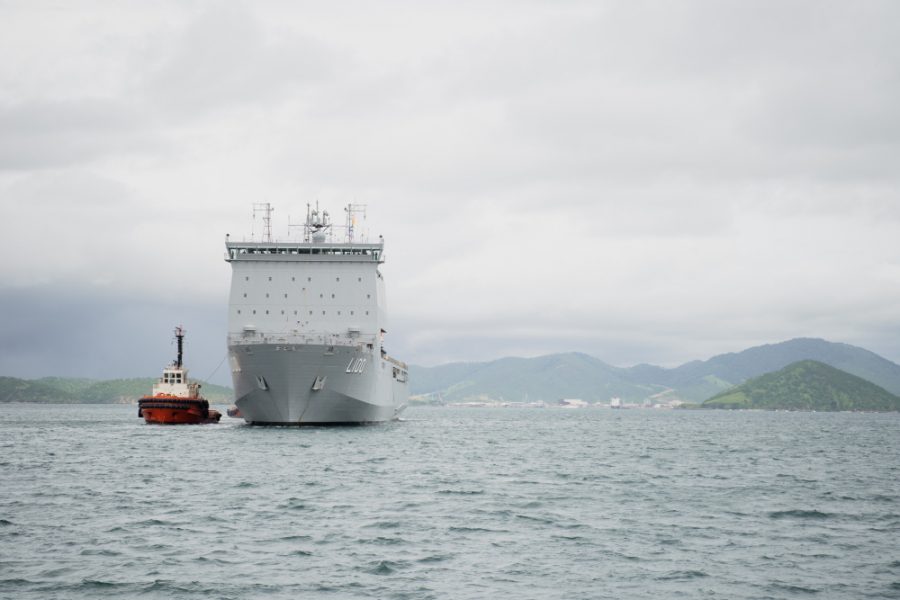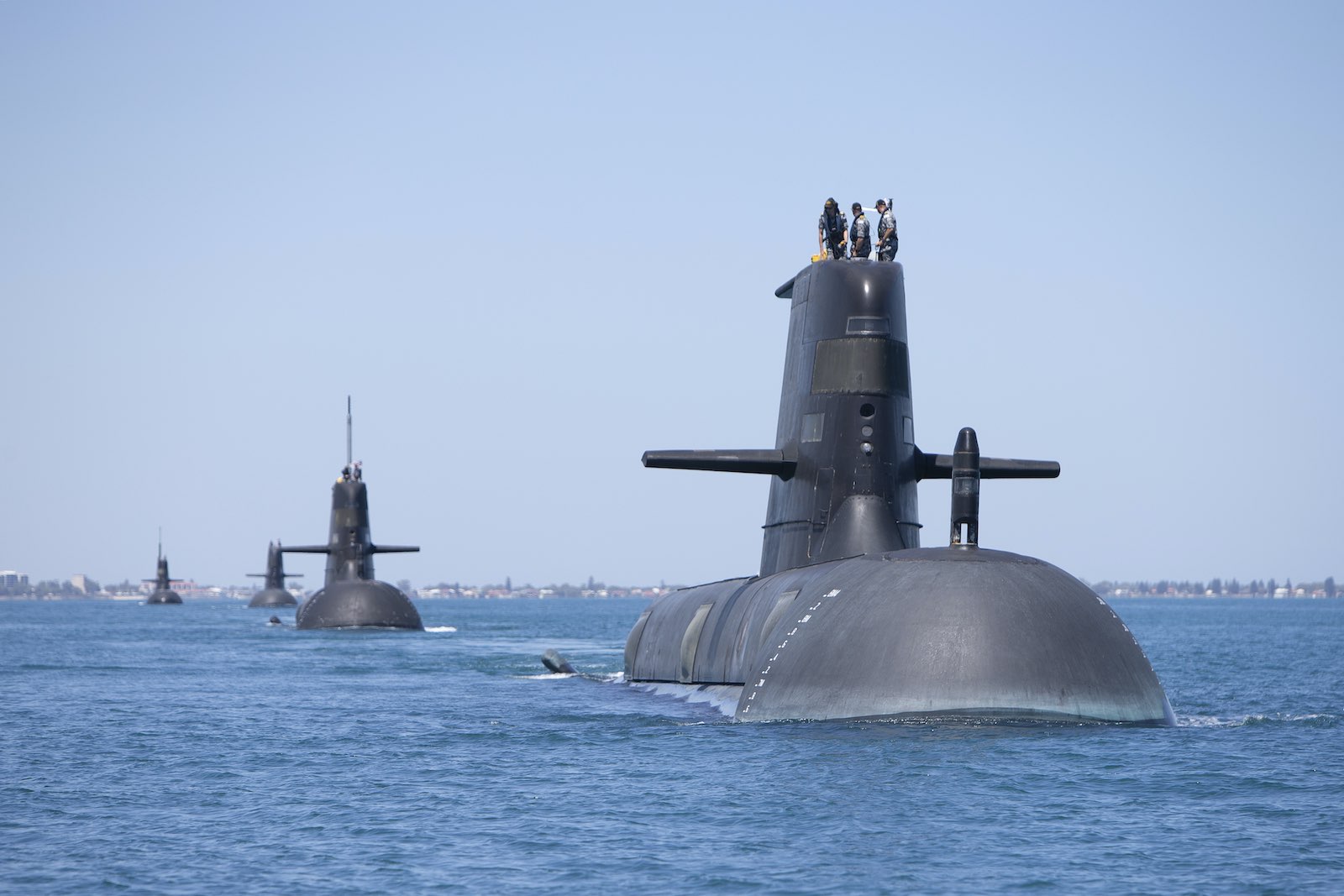National Security
- Details
- Written by Anthony Galloway
- Category: National Security

- Details
- Written by AAP
- Category: National Security

- Details
- Written by Graeme Dobell
- Category: National Security
 It’s hard to believe these days, but Australia used to be shy about proclaiming a defence or security guarantee to Papua New Guinea and the South Pacific. In the 1970s and 1980s, a gap opened between secret defence guidance about Australia’s determination to fight for the island arc and what Canberra said to the new nations of the arc.
It’s hard to believe these days, but Australia used to be shy about proclaiming a defence or security guarantee to Papua New Guinea and the South Pacific. In the 1970s and 1980s, a gap opened between secret defence guidance about Australia’s determination to fight for the island arc and what Canberra said to the new nations of the arc.
- Details
- Written by Tony McCormack
- Category: National Security
 The Quad is back in action. Australia, India, Japan and the US formed the Quadrilateral Security Dialogue in 2007 in the aftermath of the Indian Ocean tsunami, but it foundered in 2008 due to lack of support from its members. Its resurgence began in 2017, when the changing strategic circumstances in the Indo-Pacific led to a desire for the four democracies to once again work together.
The Quad is back in action. Australia, India, Japan and the US formed the Quadrilateral Security Dialogue in 2007 in the aftermath of the Indian Ocean tsunami, but it foundered in 2008 due to lack of support from its members. Its resurgence began in 2017, when the changing strategic circumstances in the Indo-Pacific led to a desire for the four democracies to once again work together.
- Details
- Written by NIC WHITE
- Category: National Security
Australia will boost its military budget by more than $11 billion a year by 2025 to defend itself against possible war with China, analysts predict. Defence spending was about $40.1 billion in the 2020 financial year and this is predicted to rise sharply to $51.26 billion five years later. Tensions are still rising with China in an ongoing trade war Beijing started almost a year ago after Prime Minister Scott Morrison called for a coronavirus inquiry.
- Details
- Written by GRANT NEWSHAM
- Category: National Security
 The Australian and Japanese prime ministers met in Tokyo last week and discussed trade, energy, environment, and defense matters. But the defense part gets the attention, as both leaders agreed “in principle” on a Reciprocal Access Agreement. The RAA makes it easier for each nation’s troops to operate in each other’s country. It’s the first such agreement Japan has signed with a country besides the United States.
The Australian and Japanese prime ministers met in Tokyo last week and discussed trade, energy, environment, and defense matters. But the defense part gets the attention, as both leaders agreed “in principle” on a Reciprocal Access Agreement. The RAA makes it easier for each nation’s troops to operate in each other’s country. It’s the first such agreement Japan has signed with a country besides the United States.
- Details
- Written by DAVID FEENEY
- Category: National Security
 The 2020 Defence Strategic Update released by the Morrison government on 1 July concluded that Australia’s strategic environment is deteriorating – and deteriorating faster than was anticipated in the 2016 Defence White Paper. This grim finding, with warnings “coercion, competition and grey-zone activities directly or indirectly targeting Australian interests are occurring now”, has been widely accepted, punctuated as it is by a low point in Australia’s bilateral relationship with China.
The 2020 Defence Strategic Update released by the Morrison government on 1 July concluded that Australia’s strategic environment is deteriorating – and deteriorating faster than was anticipated in the 2016 Defence White Paper. This grim finding, with warnings “coercion, competition and grey-zone activities directly or indirectly targeting Australian interests are occurring now”, has been widely accepted, punctuated as it is by a low point in Australia’s bilateral relationship with China.
- Details
- Written by Associated Press
- Category: National Security
The leaders of Australia and Japan held in-person talks on Tuesday and reached a basic agreement on a bilateral defence pact that would allow their troops to work more closely, as the two US allies seek to bolster their ties to counter China's growing assertiveness in the Asia-Pacific region. Australian Prime Minister Scott Morrison and his Japanese counterpart, Yoshihide Suga, said the legal framework, called a Reciprocal Access Agreement, would allow their troops to visit each other's countries for training and joint operations.
- Details
- Written by Emma Connors
- Category: National Security



